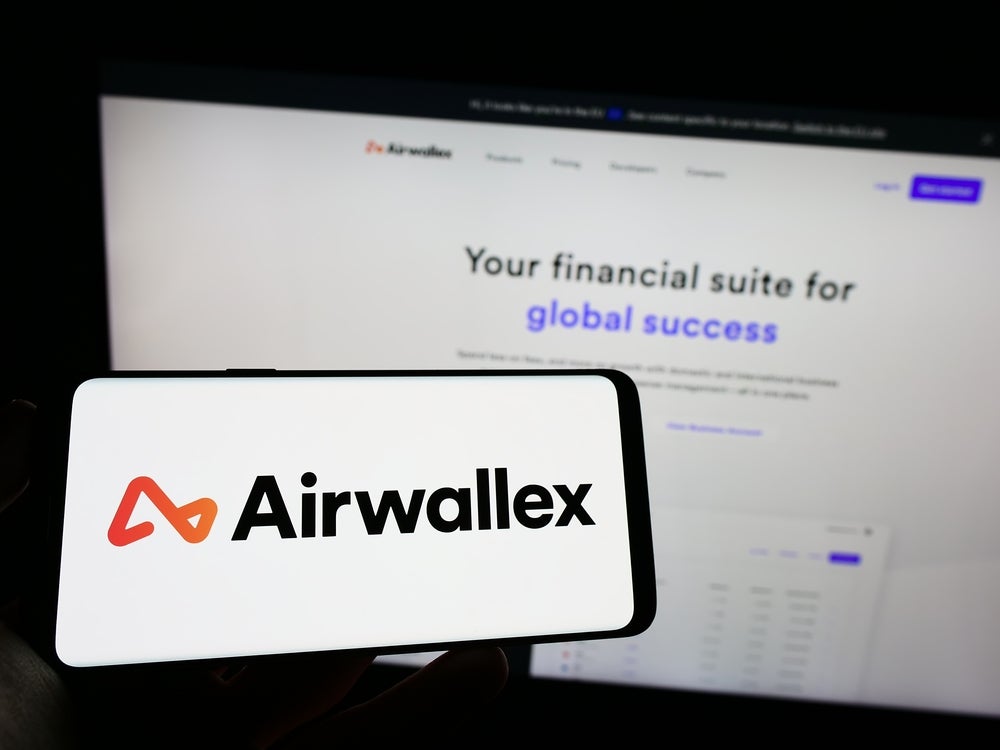Two rival alliances between major telcos and financial
institutions are set to drive mobile payments in Latin America.
Robin Arnfield looks at two high-profile JVs – one between
MasterCard and Telefónica, the other bringing together Citigroup,
América Móvil and Grupo Financiero Inbursa
In January 2011,
MasterCard and Spain’s Telefónica signed an agreement to offer
mobile financial services to the 87m subscribers of Telefónica’s
Movistar mobile subsidiary in 12 Latin American countries. The two
companies have formed a 50-50 joint venture called Wanda to operate
the services.
MasterCard and Telefónica’s joint
venture will face strong competition from an initiative involving
Citigroup, Latin American mobile carrier América Móvil, and
Mexico’s Grupo Financiero Inbursa (América Móvil and Inbursa are
both owned by Mexican entrepreneur Carlos Slim Helú).
In October 2011, the three
companies formed a $50m joint venture called Transfer to offer
mobile financial services across Latin
America. Transfer will initially offer services to customers of
Citi’s Mexican subsidiary
Banamex, América Móvil’s Mexican mobile subsidiary Telcel, and
Inbursa, starting in the first quarter of 2012. América Móvil has
236m mobile customers in 18 countries.
Both Wanda and Transfer aim to
bring mobile banking services to unbanked Latin American consumers.
“Around 75-80% of the population in Latin America has cellphones,”
says
Richard Speer, chairman of US consultancy
Speer & Associates. “But only 33-40% of Latin American
households have bank accounts. The market research we conducted in
several Latin American countries revealed a very high demand for
mobile financial services among banked and unbanked customers,”
says Pablo Montesano, chief marketing and sales officer at Miami,
Florida-based Wanda.
How well do you really know your competitors?
Access the most comprehensive Company Profiles on the market, powered by GlobalData. Save hours of research. Gain competitive edge.

Thank you!
Your download email will arrive shortly
Not ready to buy yet? Download a free sample
We are confident about the unique quality of our Company Profiles. However, we want you to make the most beneficial decision for your business, so we offer a free sample that you can download by submitting the below form
By GlobalData“Domestic remittances within Latin
American countries cost 10-15% of the transfer, and microcredit
agencies can charge interest rates of over 80%.
“Since the unbanked rely solely on
cash, it’s difficult for them to prove their income and build
credit histories. Mobile money provides an answer to these
inefficiencies.”
 Wanda
Wanda
In June 2011,
Richard Hartzell, president of MasterCard Latin America and
Caribbean (LAC), told Business News Americas that Wanda’s
intention was “to be functioning in various markets by the end of
2011”.
Montesano declined to give an exact
date for commercial rollout, but said: “We are moving to final
technological and operational tests in some of the countries in
line with Richard Hartzell’s comments.”.
“The initial offering consists of a
basic portfolio of services based on a prepaid mobile wallet,
including person-to-person transfers, mobile airtime top-up, and
bill payment.”
According to Montesano, Wanda plans
to adopt an open-platform approach offering interoperability with
multiple carriers.
“We are committed in the long term
to a multi-partner approach, although initially we are only working
to activate Movistar’s customer base,” he says.
Adopting an open-platform model
means Wanda will be able to facilitate fund transfers between
unbanked and banked consumers.
“Because our m-wallet is open-loop,
it will be integrated with existing payment systems, so funds can
flow freely between the banked and unbanked,” Montesano says.
“We have a favourable view of
sharing with other mobile money schemes the burden of financial
education [about mobile money], building cash in/cash out networks,
and supporting the introduction of mobile money regulation.”
Montesano says Wanda is pursuing a
multi-bank approach, with partnerships with banks being on a
non-exclusive basis.
“Since Wanda only acts as service
provider and enabler and doesn’t intend to become a financial
institution, banks play a critical role in our business,” he
says.
“There are several possible roles
banks can take, including: issuing m-wallets to their existing
customer base; managing the funds stored in m-wallets; and
providing financial products to m-wallet customers.”
“I envisage Wanda offering its
platform to small banks or microfinance institutions that cannot
afford to develop their own m-payment services,” says Álvaro Martín
Enríquez, a partner at Madrid, Spain-based consultancy Analistas
Financieros Internacionales.
Currently, in most Latin American
countries, regulators require mobile money or prepaid card issuers
to involve a bank, adds Enríquez. However, in 2010 Mexico passed a
law stating that e-money issuers do not need to be banks.
“Peru
has drafted similar legislation, expected to become law in 2012,”
Enríquez says.

Cash
replacement
MasterCard and Telefónica said in
January 2011 that Wanda plans to offer m-payments in segments such
as taxis and small merchants that currently only accept cash.
“Currently, it isn’t economically
viable to provide POS terminals to small merchants who handle only
low-value transactions,” says Montesano.
“But these informal merchants have
cellphones, which can be used to enable cellphone-to-cellphone
transactions.
“So m-payments will be very
beneficial to them, offering greater security than accepting cash,
and helping them increase their sales volumes, for example with
customers who aren’t carrying cash.”
Montesano says Wanda plans to offer
NFC payments for on-premise purchases, once NFC-enabled devices and
POS infrastructure become widely available. Wanda also plans to
offer prepaid cards.
“We believe physical and virtual
prepaid cards can be a strong complement to m-wallets,” Montesano
says.
Brazil
In November 2011, MasterCard and
Telefónica announced a 50-50 joint venture to provide mobile
financial services to the 68m subscribers of Telefónica’s Brazilian
subsidiary Vivo.
The new company, which is subject
to Brazilian regulatory approval, will provide subscribers with
m-wallets offering similar services to those provided by Wanda.
However, it will be a separate entity from Wanda.
MasterCard and Telefónica say the
initiative will aim to encourage the acceptance of m-payments in
locations that traditionally have only accepted cash, such as taxis
and delivery services.
Separately, since December 2010,
MasterCard has been running an NFC payment and mobile remittance
pilot in Brazil with Brazilian bank Itaú
Unibanco, acquirer
Redecard and Vivo.
The MasterCard Mobile pilot enables
Vivo subscribers to link their Itaú MasterCard credit or debit card
to their cellphone for retail purchases, airtime reloads, and,
through a partnership with Philippines telco Smart, remittances to
the Philippines.
América Móvil
“Telefónica is not as big in Mexico
as América Móvil, whose Telcel subsidiary is the dominant Mexican
mobile brand,” says Speer.
He predicts that Transfer will see
significant transaction volumes in the second half of 2012, with a
massive ramp-up in 2013 and 2014.
América Móvil aims to have 15% of
its Latin American mobile subscribers using Transfer in four
years.
“América Móvil’s 236m customer base
compensates for Citi’s lack of presence in Latin America outside
Mexico and Central America,” says Speer.
América Móvil says that other Latin
America telcos’ can join Transfer. “It is aggressively developing
its plans to roll out Transfer to the rest of Latin America,” says
Speer. “I think América Móvil’s aggressive approach will encourage
Telefónica not to get left behind.”
Barriers
Wanda’s Montesano says two factors
are inhibiting the development of m- payments.
“Firstly, the region lacks an
adequate regulatory environment to foster mobile money-based
financial inclusion, although several countries have made important
steps in this direction,” he says.
“Risk-adjusted anti-money
laundering and know-your-customer requirements need to be
introduced that recognise lower-income consumers’ specific
characteristics such as lack of ID and lower transaction
volumes.
“The second factor is the need to
set up extensive and liquid cash in/cash out networks to support
mobile money services.”
“The real challenge in setting up
the MasterCard-Telefónica deal is not technology but organisational
issues, for example how to work out revenue-sharing,” says
Speer.
“Preventing fraud from customers’
m-wallets and complying with the varying regulatory regimes in
force for banks and telcos in Latin America will also be big
issues.”
Given that the bulk of mobile money
transactions will be for low-value purchases by consumers on low
incomes, user fees must be kept very low, says Speer.
“América Móvil and Citi say they
will charge the local currency equivalent of 7-15 US cents per
transaction,” he adds.
Speer is bullish about the
potential market in Latin America.
“I expect m-payments to develop
very fast, given the size of América Móvil and Telefónica’s mobile
customer bases,” he says. “Both Mexico
and Brazil
will see the biggest m-payment volumes in the region.”
Over the past five years, there was
a lot more talk about m-commerce by Latin American telcos than
action, Speer says.
“It is Visa and MasterCard which
have galvanised the telcos to take action,” Speer adds. “MasterCard
and Visa are both very proactive in m-payments in Latin
America.”
According to Speer,
Visa’s $110m acquisition of South African m-payment platform vendor
Fundamo and its partnership with m-banking firm
Monitise are very significant for Latin America.







